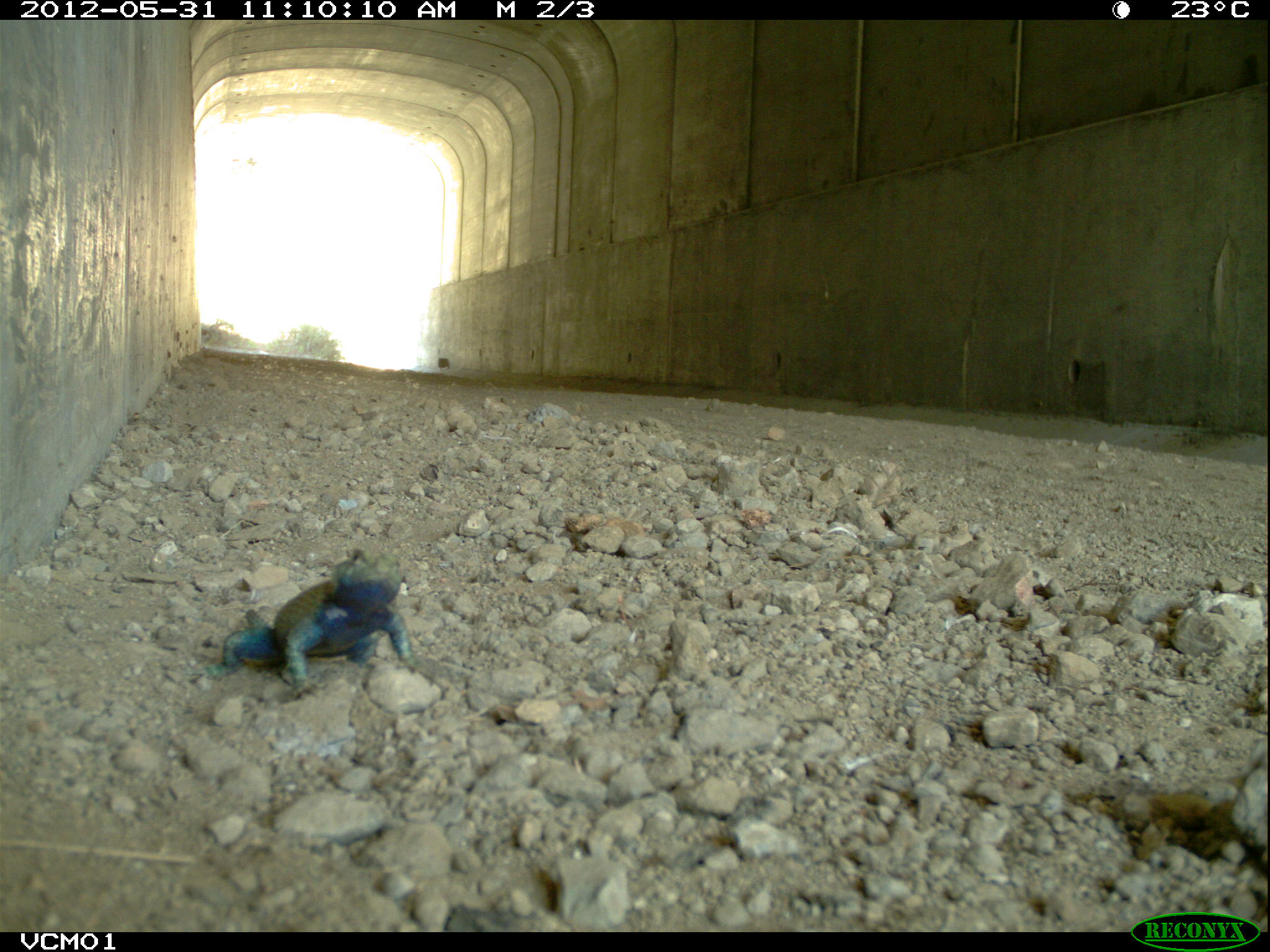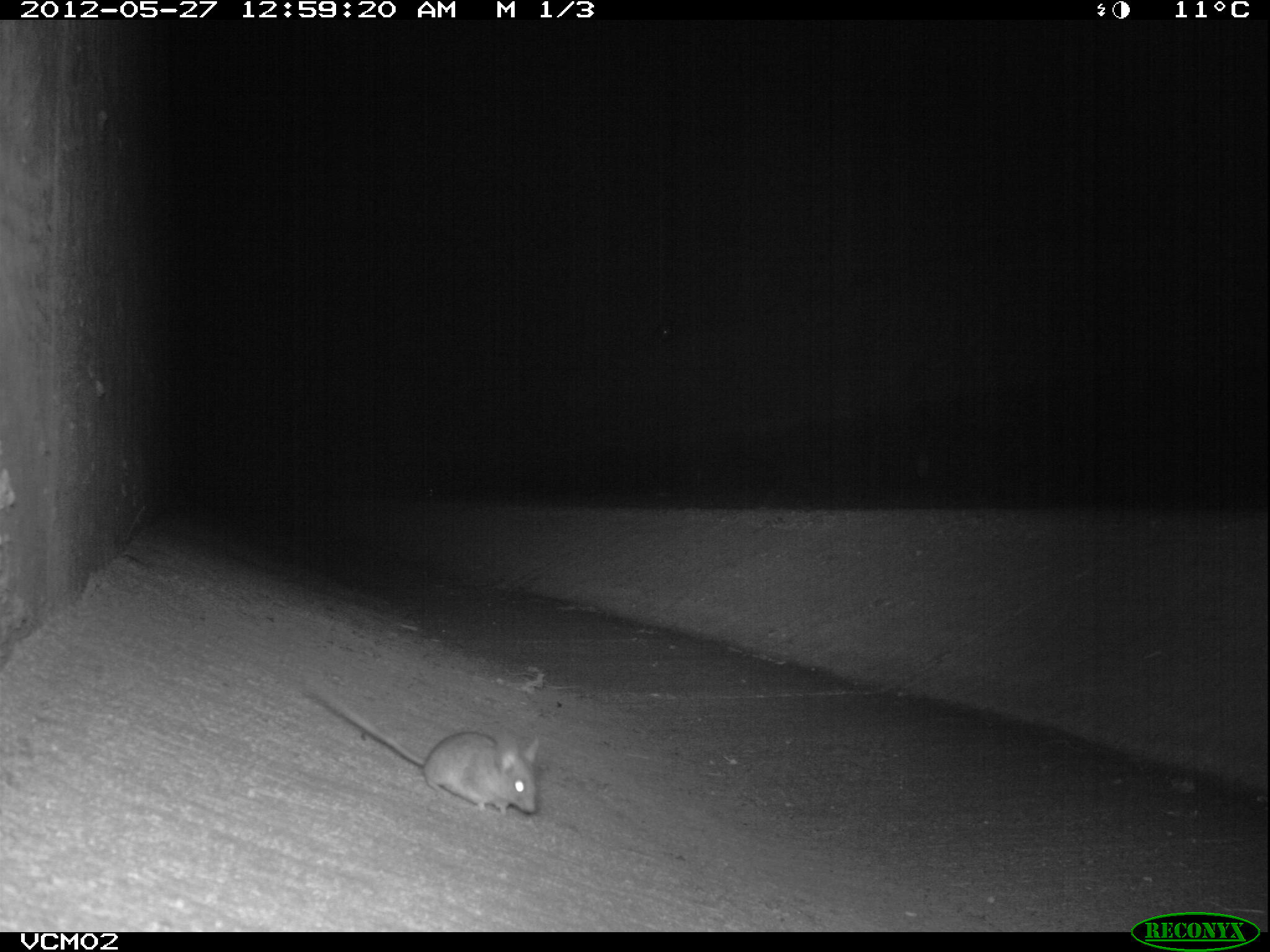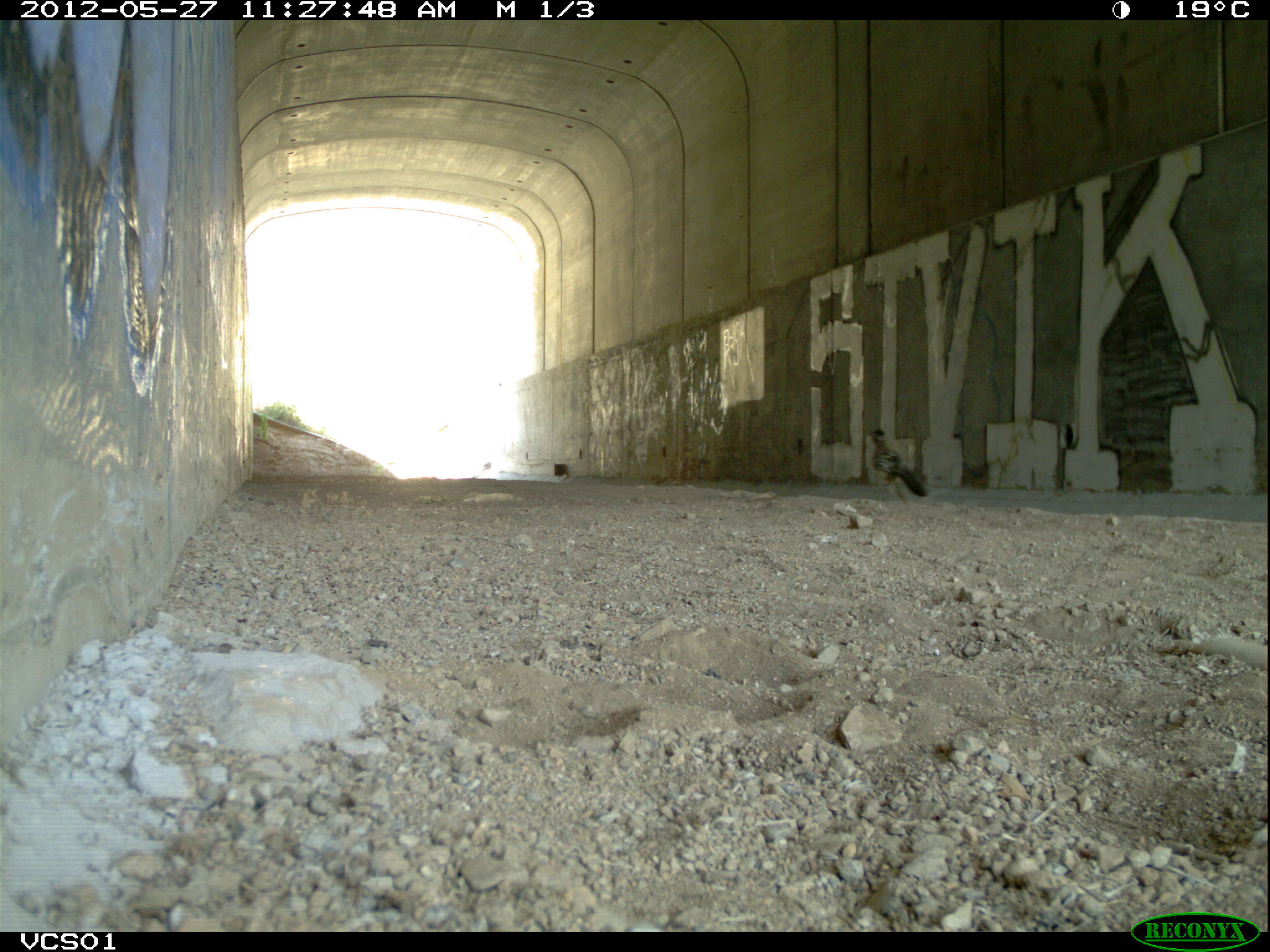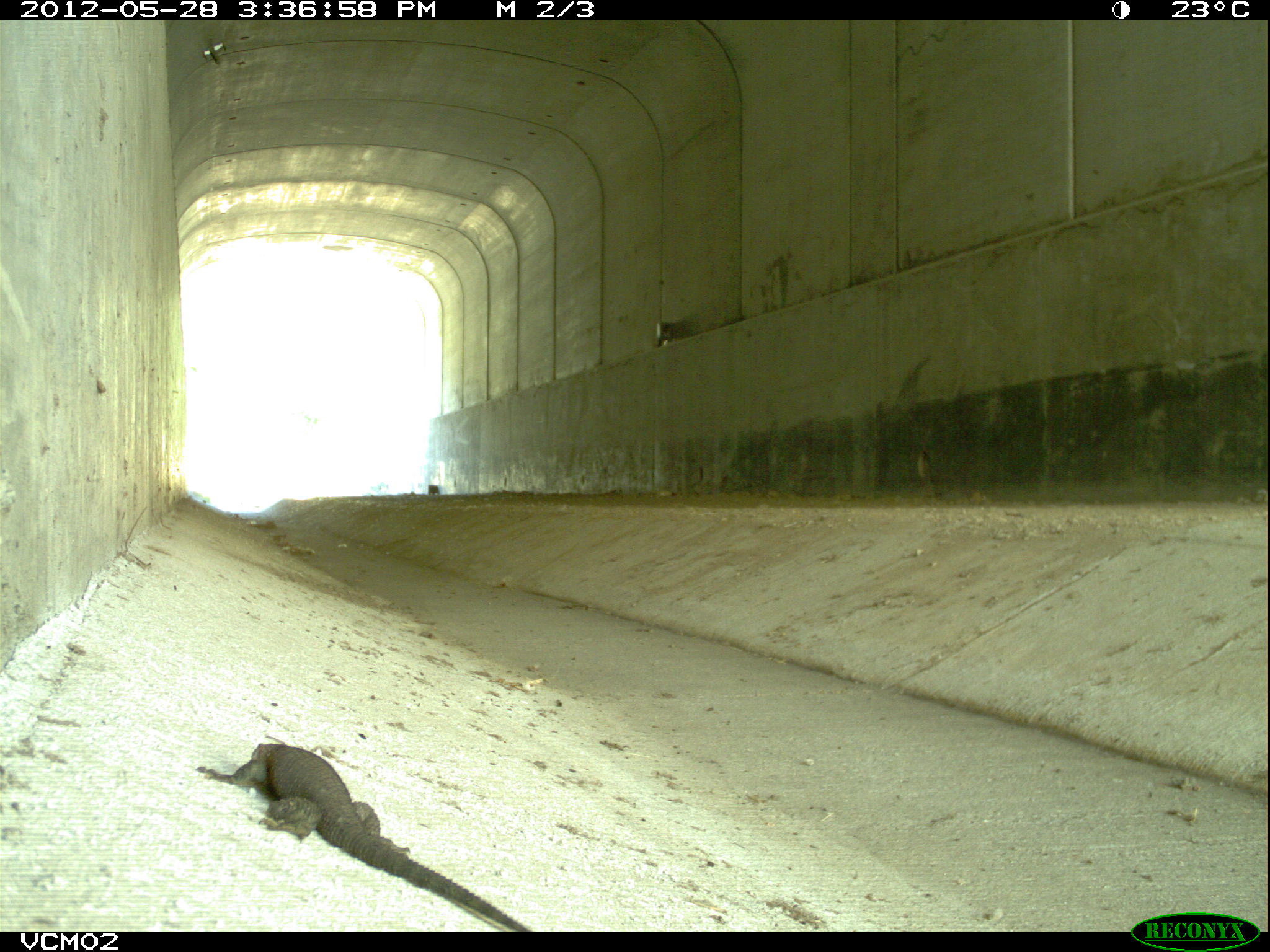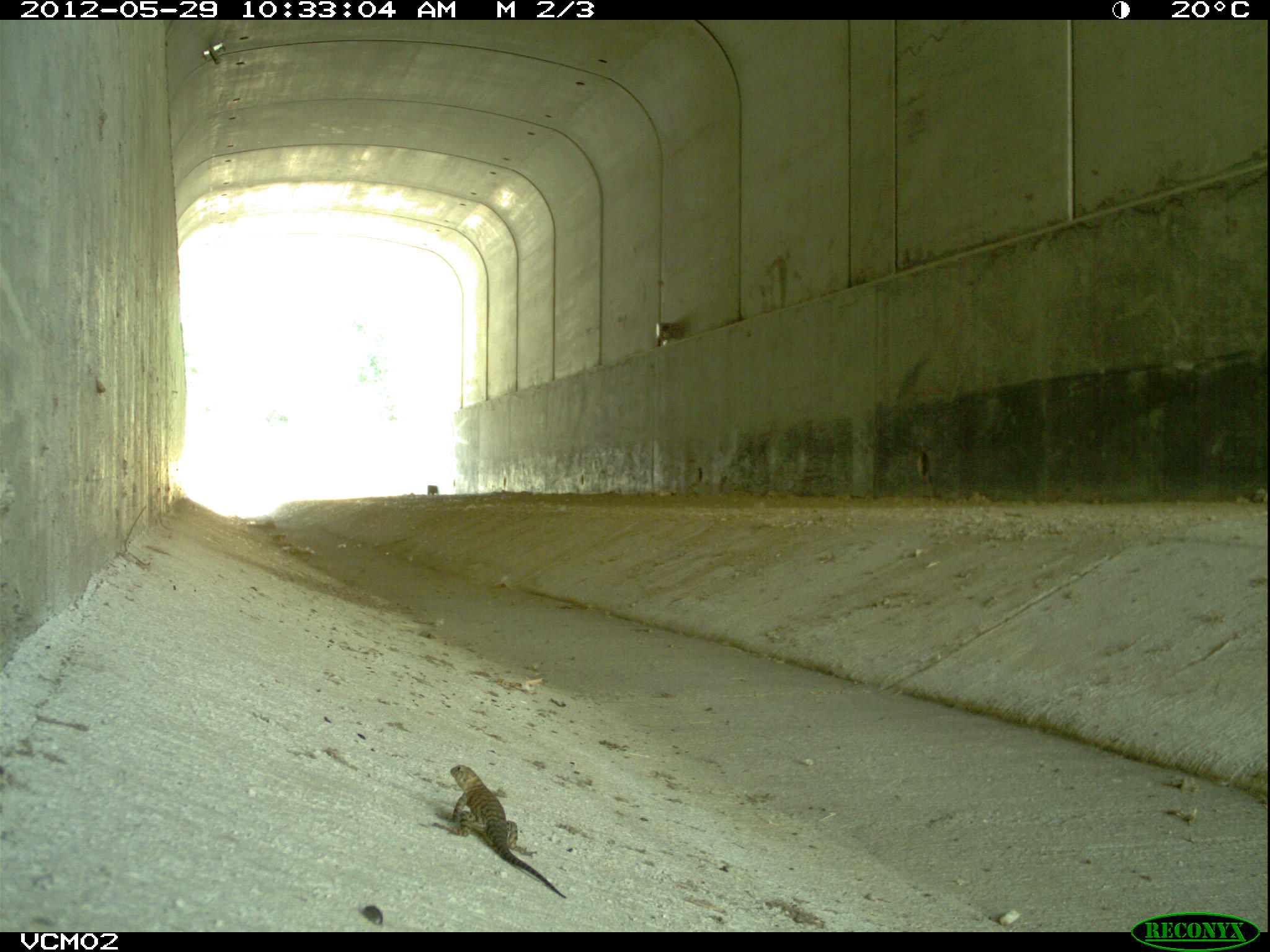Small Vertebrate Underpass Study
In 2012, the small animal connectivity study began as part of Connectivity Monitoring Strategic Plan (CMSP) developed by the San Diego Monitoring and Management Program (SDMMP). There were three main objectives in this study. First, to determine which groups of small vertebrates are currently using or avoiding these wildlife underpasses and understand how these behaviors may be predicted by life history characteristics. Secondly, to investigate the effectiveness of adding cover structures to underpasses as a way to enhance small vertebrate use of underpasses. Third, to evaluate the extent to which larger vertebrates often used as focus species in connectivity studies in the region act as indicators of use by small vertebrate species.
Project Focus
Black-tailed Jackrabbit, Bobcat, California ground squirrel, California vole, Coyote, Granite Spiny Lizard, Gray fox, Greater Roadrunner, Kangaroo rats, Mule deer, Orange-throated Whiptail, pocket mice, Raccoon, Red Diamond Rattlesnake, Side-blotched Lizard, Striped skunk, Western Fence Lizard, Western Rattlesnake, Western Whiptail, Woodrats
Carlton Rochester
Robert N. Fisher
U.S. Geological Survey, Western Ecological Research Center
California Department of Fish & Wildlife
Cheryl Brehme
Sarah McCutcheon
Jeff Tracey
Project Protocol
| File name | Lead Author | Year | Type |
|---|---|---|---|
| A field study of small vertabrate use of wildlife underpass in San Diego County, 2014 | Tracey, Jeff; Brehme, Cheryl; Rochester, Carlton; Clark, Denise; Fisher, Robert N. | 2014 | report |
| Presentation- Small Animal Use Of Wildlife Underpasses | Tracey, Jeff; Brehme, Cheryl; Rochester, Carlton; Hathaway, Stacie; Fisher, Robert N. | 2012 | powerpoint presentation |
